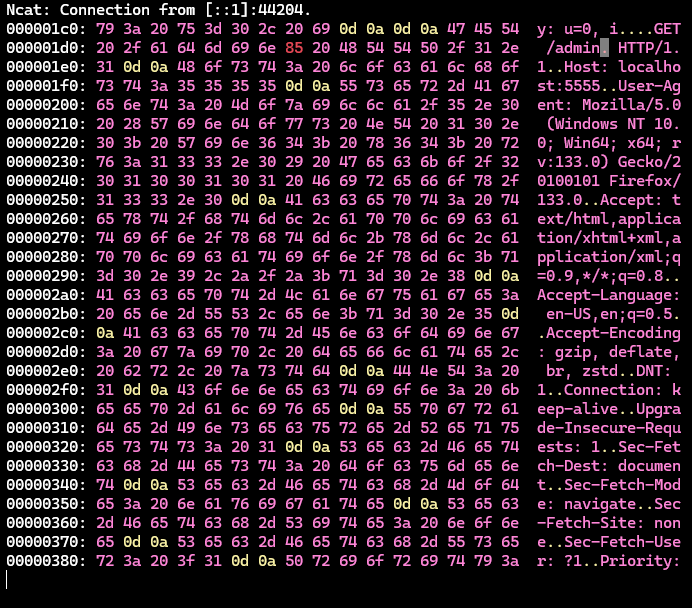Dealing with Binary Data
Caido plugins are written in JavaScript. When creating a plugin that must handle raw bytes, there are some caveats to be aware of as the backend language used by Caido is Rust.
UTF-8 Encoding
For Unicode code points outside of the ASCII range (U+0000 to U+007F) multiple bytes are used.
When encoding code points into multibyte UTF-8 characters, the bytes are prefixed with specific bit patterns. The first byte prefix indicates how many bytes are used based on the number of leading '1's, and any subsequent (continuation) bytes begin with '10'.

This can be an issue if you want to create a Caido plugin that sends invalid UTF-8 to a target server to see how it is processed.
For example, if your intention is to append the byte \x85 ([1000 0101]) to a path:
- JavaScript strings are encoded using UTF-16 (
[0000 0000 1000 0101]). - When passed to Rust, it is encoded as UTF-8. To produce valid UTF-8, the prefix is added to satisfy the multibyte pattern rules:
- First byte
C2:[1100 0010](prefix marks start of 2-byte sequence) - Second byte
85:[1000 0101](continuation byte)
- First byte
- Now,
[1100 0010 1000 0101]is sent instead of the intended[1000 0101].
TIP
You can view this visually by listening for the request with Netcat:
ncat -lvnp 5555

You can view the bytes by piping xxd to display the hex dump:
ncat -lvnp 5555 | xxd -g1

Preserving the Raw Byte
To avoid the conversion, the raw byte must be used instead. This can be accomplished by:
- Taking a request and returning a UInt8Array byte stream:
.getPath({raw: true})
- Creating a new array that includes the existing bytes and the added byte:
let path = [...spec.getPath({raw: true}), 0x85]
- Setting the path to use this new array:
spec.setPath(path)
TIP
Now, C2 will not be prefixed:
ncat -lvnp 5555 | xxd -g1

What's next?
To view the full script and an additional technique that can be used to set raw bytes in Caido plugins, click here.
